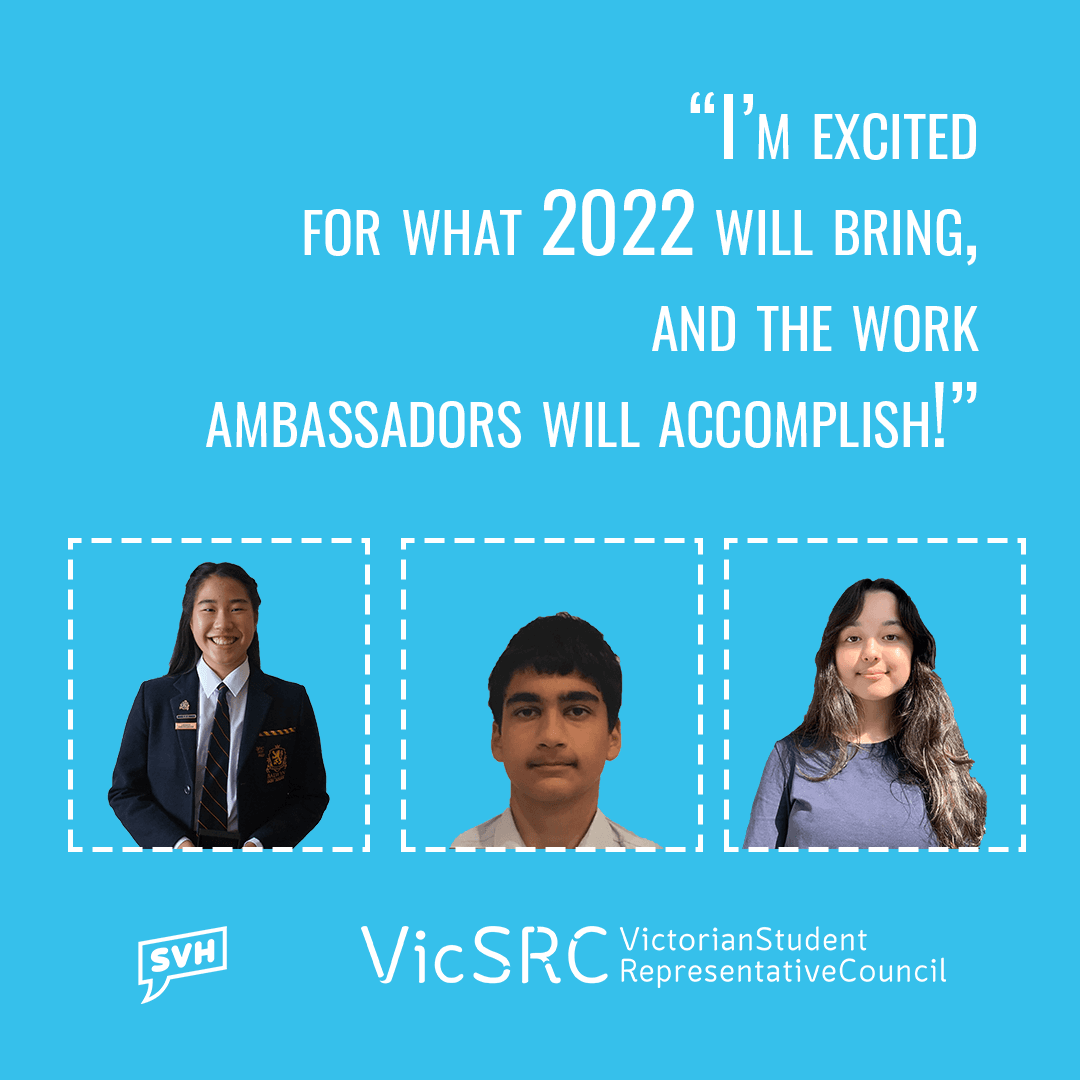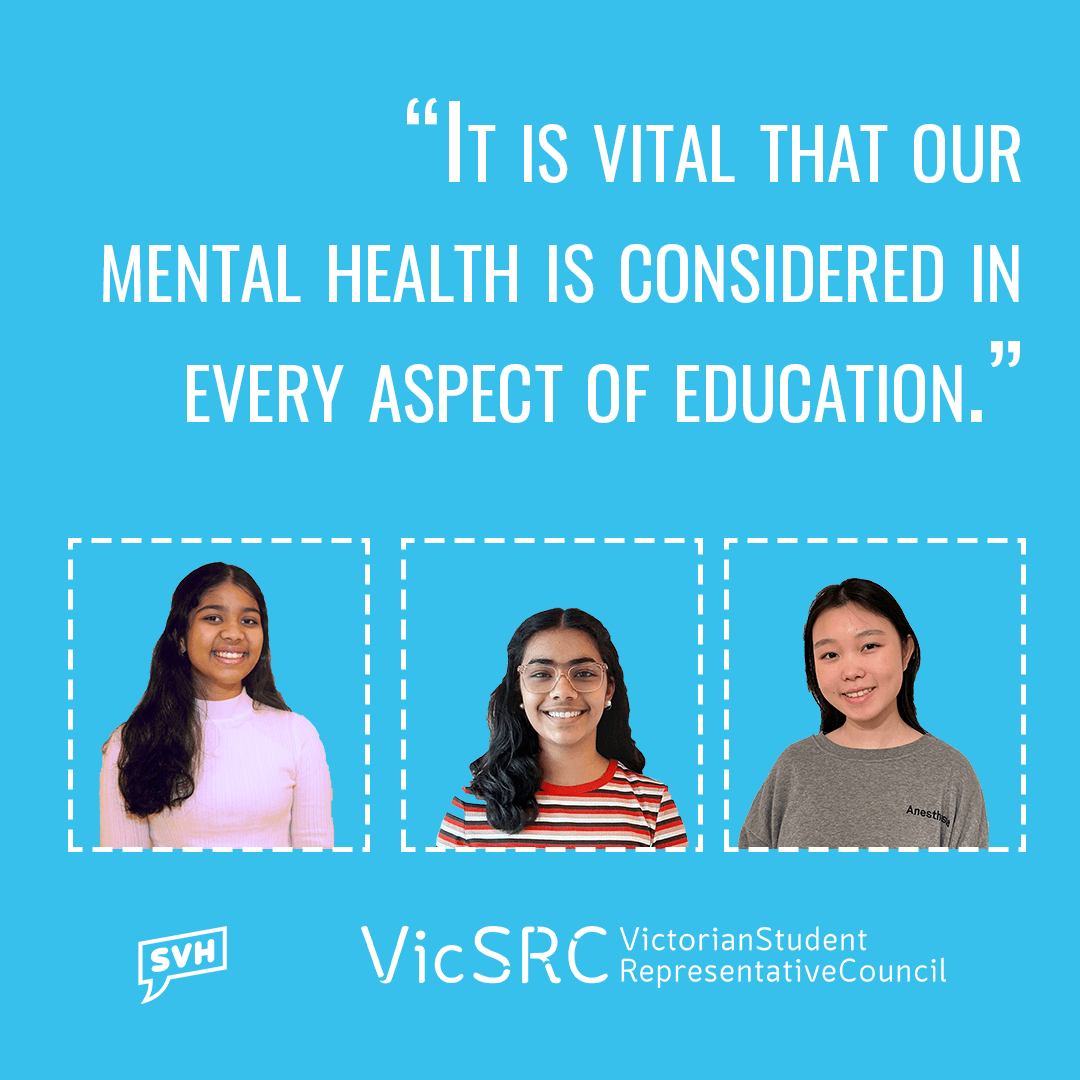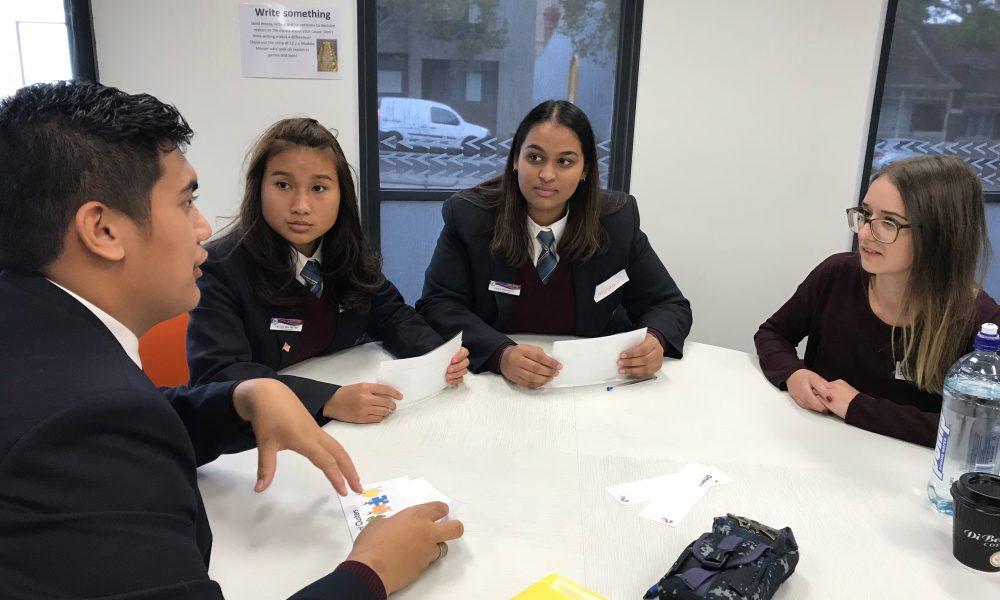VicSRC has been busy for the past month attending engagements with stakeholders across the education sector sharing for your advocacy asks and student-led solution and advocating for student wellbeing. One of these was the Education State Guiding Coalition workshop with the DET. The Education State Guiding Coalition workshop is an opportunity for a group of individuals from different organisations within the education sector to come together and discuss possible changes and improvements that DET can make to better provide support for and understand the current state of student wellbeing.
Executive Committee members Derrick, Charlotte, and I plus VicSRC CEO Nina went to represent students, along with various other professionals in the education sector, where we were asked questions relating to wellbeing, P-10 assessment and family engagement. More specifically:
What were the enabling features of the remote learning environment that were of benefit to some students, and how might these be replicated in the on-site environment?
To what extent do different cohorts – students, staff, principals, parents/carers/community support the proposition that wellbeing is an equal priority with learning for schools? What, if any, further work is required to ensure a coherence across all cohorts?
How do we recognise, celebrate and reward vocational pathways as much as academic ones within schools and the broader community?
How do we shift the definition of success/achievement with students, parents and the community?
Now obviously these light-hearted (ha. ha.) questions were right up our alley and we had so much to share regarding the experiences of students during the past couple of years. Some of the things we spoke about included transferring the flexibility and comfort of remote learning to face to face classes, ensuring that well-being and academic learning are held to the same level of importance by teaching wellbeing strategies parallel to the academic curriculum and importantly involving the teachers in the wellbeing process – because let’s face it how can students be well if their teachers aren’t.
Another key point that the group focused on was the importance of holding vocational and academic education to and equal standard and level of ‘prestige’. This led to discussions around measuring success in schools as how many people get into their desired pathway instead of by ATAR, surprisingly many of the professionals there agreed that ATAR could be scrapped however unfortunately this would mean that universities are the ones who would need to change. It was also mentioned that parents, careers and teachers needed to shift from this idea that university is the only pathway to success.
Regarding the wellbeing of students the topic of respectful relationships also came up. Many said that there is a lot of pressure on teachers to achieve the outcomes outlined through the various respectful relationships and consent programs, and a way that this pressure could be eased is ensuring that such programs are all under the same umbrella so that schools have a clear direction of what to provide.
Overall, it was an extremely insightful experience. This was my first in person engagement and it was so fun to be able to represent different student perspectives and realise how valued our opinions as students are. The people there were so genuine about wanting to hear about our experiences and opinions on how support can be provided. They were also especially interested in how we see the education department as students currently in the system.
That was all the fun stuff that we covered during the day but before I say bye, let me share this very serious and professional quote that was said to us, “School is like broccoli, we don’t always want to go but its good for us”



